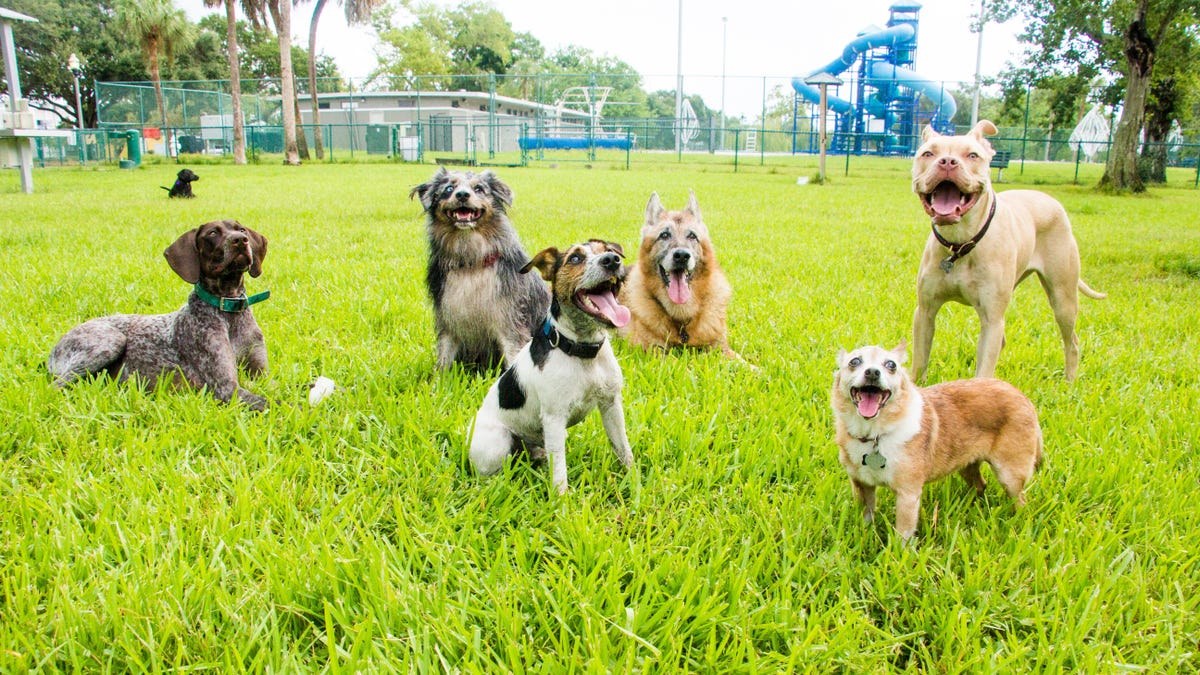Four Ways to Make the Dog Park Safer for Your Dog

The name “dog park” suggests a haven for our four-legged friends, but many veterinarians and pet owners say dog parks are unsafe . These dog park advocates point to a list of potential problems: anxious dogs, uncontrolled animal aggression and disease transmission among them. But while this all sounds bad, the level of risk is not much different from what you might face when playing sports in a park.
Dog parks are often the only place where an urban dog can run off-leash, and they can also play a role in the animal’s socialization with other dogs as well as other people. While there are risks involved in bringing your puppy to one of these, you can mitigate the risk by using these tips.
Do not bring young puppies or unvaccinated dogs to the dog park.
Just like humans, puppies should receive a series of vaccinations starting at 6-8 weeks of age, with vaccinations spaced out during the first months of life to help build immunity. Although some dogs need additional vaccinations before 20 weeks, recommendations suggest that your dog should be at least 17 weeks before he has enough immunity to safely visit the dog park.
However, not all dogs are vaccinated, and a dog park is not a suitable place for unvaccinated dogs. First, a dog needs vaccinations to be licensed, and in most communities all dogs must be licensed, so having an unvaccinated dog on the street could violate local laws. Second, dog parks are inherently breeding grounds for canine diseases, and vaccination is a key way to stop the spread of infection to and from your dog. What’s more, vaccinations and preventative treatments can only curb some of the diseases you’ll encounter at the dog park, such as parvovirus, kennel cough, and worms, so it’s important to protect them as best you can.
Bring your own bowl of water
Many dog parks have communal water bowls or fountains, which, unfortunately, are also a good way to spread diseases such as canine influenza, internal parasites, giardia , kennel cough, salmonella. The easiest way to prevent this is to make sure your puppy is up to date on all vaccines and anti-parasitic treatments (see above), and bring his own water bowl. A water source isn’t usually an issue, so you likely won’t have to bring water with you—just make sure your dog has access to his own bowl (like this easy-to-clean collapsible bowl ) and that he doesn’t eat the water. in a common bowl.
And if your dog has diarrhea, weight loss, vomiting, dehydration, inability to gain weight, and lethargy, you should contact your veterinarian for treatment.
Always keep your dog in sight (and practice vocalization).
As with any public place, you cannot control what will happen or who will be at the dog park. Your experience will be unpredictable for the simple reason that dogs (and people) can be unpredictable. The best way to keep your animal safe is to make sure you are involved in what it is doing, so always keep your dog within sight and teach your dog to respond to a vocal call – essentially, this is when you say, “Come here.” !” and they listen to you no matter what.
This will allow you to move your dog away from a situation where he may be unsafe or overstimulated. Practice recall at different times while you’re in the park so they don’t associate the command with simply ending the game.
Clean your dog’s paws after visiting the dog park
Not to state the obvious, but the dog park is full of dog poop. While we hope that owners know how to clean up after their pets, dirt is not cleared of bacteria when someone cleans up after their dog. And dog feces can contain worms if the dog is infected. ( The DogPARCS study found worms or intestinal parasites in 85% of the parks studied.)
When your dog walks in the park, he may pick up feces on his paws, just as you might pick it up on your shoes. Dogs that roll around on the grass or eat whatever comes their way have a higher risk of infection. So when you get home, give your dog’s paws a good drying or bathe him if he’s been rolling around to make sure you’ve removed the poop. Also clean the soles of your own shoes or remove them when outdoors.
Working with a veterinarian to keep your dog on a deworming regimen is also key to ensuring he doesn’t bring home worms from the park. Treating parasites can be expensive and can also cause a lot of discomfort for your dog.